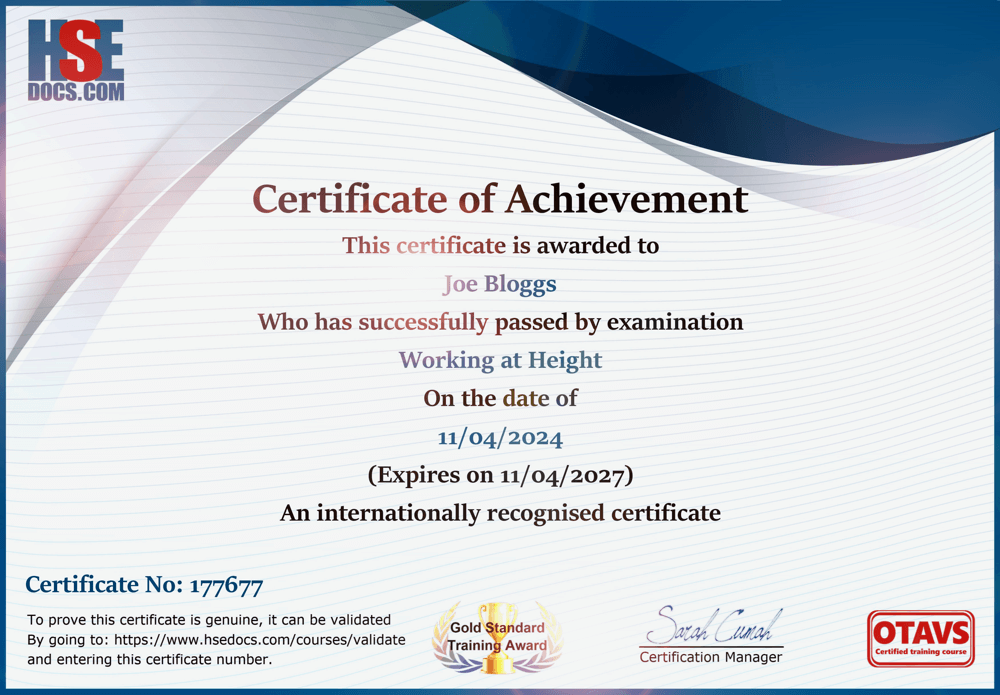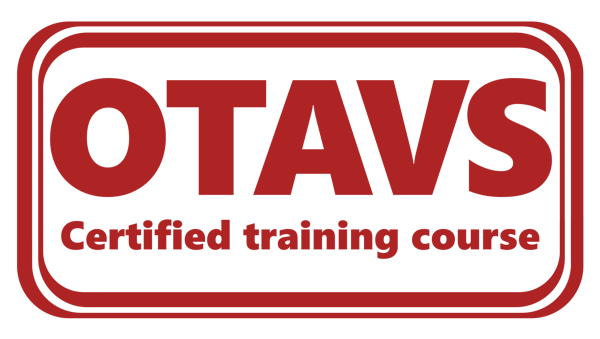Online Modern Slavery Training to help recognise and address exploitation in the working environment.
This training provides information and practical guidance on recognising, reporting, and addressing modern slavery in both the workplace and the wider community. The course presents content and real-world scenarios covering topics such as identifying potential signs of exploitation, understanding legal obligations, and developing strategies for intervention and support. The objective of this training is to increase awareness and enable individuals to contribute to work environments without modern slavery.
Course certificate valid for 3 years
Internationally accredited training
£9.99 for an individual course
£6.49 for 10 or more
£4.99 for orders of 50 or over
This course is accredited and certified by OTAVS.
Online Training Accreditation & Verification Service
Course duration: Between 2 and 3hrs depending on learning speed.
Course format: Three video training modules, with a multiple-choice section at the end of each module.
Entry Requirements: Anyone can complete this course, whether they have previous experience or not.
All successful candidates are entered on the national training register, and certificates can be verified by employers or others to prove that they are genuine by clicking Validate a Certificate and typing in the certificate number.
Overview of HSEDocs Modern Slavery Training Course
The learning topics covered in this course include:
- The difference between modern slavery and historical slavery
- What was chattel slavery?
- Types and forms of modern slavery
- The global fight against slavery
- Roles of governments, organisations and companies
- What to do if you suspect modern slavery
- Reporting procedures
- Duties of employers
- Prevention and response
This training course provides comprehensive coverage of various forms of modern slavery, including human trafficking, forced labour, and servitude. It addresses key indicators of modern slavery and outlines procedures for reporting suspected cases. Participants receive an overview of applicable legislation and learn about the critical importance of victim identification and support. The primary objective is to increase awareness and empower individuals to report potential incidents, thereby assisting law enforcement and relevant agencies in combating offenders and safeguarding victims. The course also emphasises the ethical and moral responsibilities associated with addressing modern slavery and upholding human rights.
- Overview of various forms of modern slavery, including forced labour, domestic servitude, sexual exploitation, and criminal exploitation.
- Examination of pathways into victimhood, such as poverty, vulnerability, debt bondage, and coercion.
- Analysis of the global and UK prevalence of modern slavery, supported by statistics and identification of high-risk locations.
- Comprehensive review of relevant legislation, including the UK Modern Slavery Act 2015.
- Clarification of specific legal obligations for organisations, particularly regarding supply chain transparency statements.
- Explanation of the National Referral Mechanism (NRM) and its role in identifying and supporting victims.
- Emphasis on the significance of due diligence and risk assessment procedures to prevent modern slavery in supply chains.
- Guidelines for recognising both physical and behavioural indicators of modern slavery.
- Insight into the psychological effects experienced by victims of modern slavery.
- Identification of populations most vulnerable to exploitation.
- Recommended actions upon suspicion of modern slavery.
- Detailed reporting protocols and relevant contacts, such as the Modern Slavery Helpline, police, and local authorities.
- Consideration of safeguarding best practices and provision of appropriate support for potential victims.
- Description of the roles and responsibilities of various agencies and partnerships in addressing modern slavery.
- Development and implementation of policies and procedures to mitigate modern slavery risks within organisations and their supply chains.
- Execution of thorough due diligence and risk assessments in procurement and supply chain management.
- Provision of staff training focused on the identification and response to possible modern slavery cases.
- Promotion of ethical business practices and collaborative efforts with stakeholders to combat modern slavery.
In essence, modern slavery training aims to equip individuals and organisations with the knowledge and skills necessary to understand, identify, prevent, and report instances of modern slavery.


 CART
CART 















